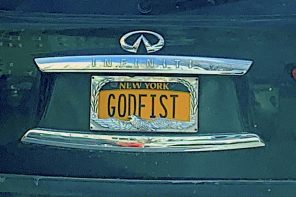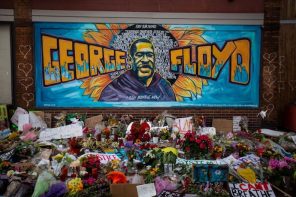Digby, in writing about the catastrophe that is the global economy, is appalled at some of the magical thinking going on:
It isn’t that these leaders think consumer confidence will save us —- they don’t care about the real economy at all. Growth is solely a measure of elite confidence that their wealth will continue to grow. Somehow, these people have so completely sealed themselves in a bubble that they think that their ability to keep their game going is the only thing that matters. The real economy has become the fantasy and their arcane financial instruments have become the reality.
I don’t know what you do about this. It’s irrational behavior and very difficult to counter. The global financial gamblers are unwilling to admit that the party’s over and so they are going to steal money from the average workers to keep it going for a while longer. The “confidence fairy” is nothing more than the desperate bravado of addicts trying to avoid hitting bottom. And taking everybody else with them.
Just so. As Simon Johnson pointed out last year, the financial oligarchs are unwilling to admit that structural change is necessary, because deep-seated reform inevitably means that some of them are going to lose a lot of money. That’s what all the talk about entitlement reform is about: the economic elites essentially want to recapitalize themselves with the Social Security trust fund, so they can keep the party going without taking the hit they’ve earned with the current meltdown.
I wrote about this situation in Changing the Script:
Perhaps counterintuitively, the task of articulating new beginnings involves to a large extent getting people to understand that the present order has come to an end. Think of the common saying about rearranging deck chairs on the Titanic. Until prophetic insight is able to penetrate the “royal consciousness” enough to make the point that the ship is in fact lost, the temptation will be simply to order and reorder the situation without adaptation to the new reality breaking in all around. Brueggemann understands this a kind of despair, as with the Israelite kings unable to understand that their fiefdoms were lost, and exile in Babylon was just around the corner. Only when the depth of loss is accepted and internalized can the people be freed to reach out to the new beginnings made possible by what has ended.
Prophets, according to Brueggemann, articulate an “alternative future,” i.e., one that’s different than what has come before. To do that, they have to confront their audience with the end of the current system—our global financial ship is, in fact, sinking—and then they have to “mine the memory of [the] people and educate them to use the tools of hope.”
For Christians and Jews, the memory is our journey together as the people of God. Community—social solidarity—is the source of hope over and against predatory economic arrangements. This, Brueggemann apparently argues in his new book, is the moral structure behind the Ten Commandments. God provides the community with a framework for living out their hope-filled, alternative future in a just way.
I’m not sure what the equivalent is for secular folk. Not that they have anything against community or the common good: I just don’t want to speak for what gives them hope.
I do know what piercing the royal consciousness looks like from a secular perspective, though: a lot like telling David Brooks to STFU. Just like Krugman says (and Dean Baker agrees), plenty of people predicted the current economic implosion, and those same people have a pretty simple solution to our woes. But the solution involves telling the powers-that-be that the party’s over, which is of course exactly what they don’t want to hear. Until they’re ready to do so, we will remain stuck right where we’re at, unfortunately.



